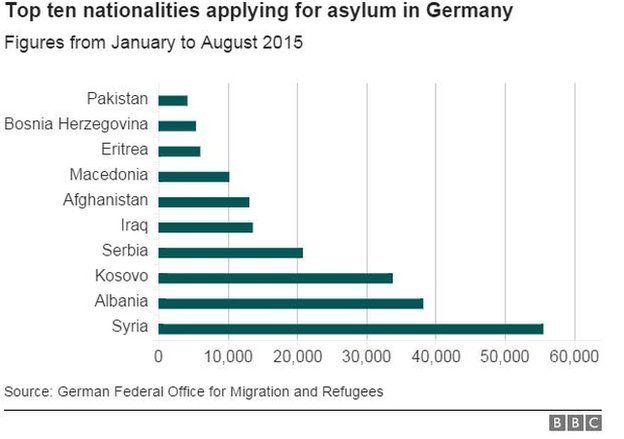New Somali refugee arrivals in Minnesota are increasing
Tales of the state’s large Somali community had intrigued them back in the Kenyan refugee camp where they had married and had five children. Now, a Somali man they met in Hartford told them all recent arrivals head to Minnesota, home of “Little Mogadishu.”
After a major dip in 2008, the yearly numbers of new Somali refugees in Minnesota have rebounded steadily. The number of Somalis resettled in the state has more than tripled in four years. As resettlements nationally have picked up, more Somalis are also arriving here after brief stints in other states — often trading early support from resettlement agencies for the company of more fellow Somalis.
“You tend to go somewhere you can connect,” said Mohamud Noor, the head of the Confederation of Somali Community in Minnesota. “Before people even arrive from Africa, they know they are coming to Minnesota.”
But without the Twin Cities family ties of earlier arrivals, these newcomers often can’t lean as heavily on longer-term Somali residents. Mary’s Place, a Minneapolis homeless shelter, has become ground zero for families like Ali and Mohamed’s. Somali participation in the state’s public food assistance program doubled in the past five years. Meanwhile, the Minneapolis School District, its Somali student enrollment up 70 percent since 2011, launched eight classrooms with instruction in both English and Somali to help newcomers catch up.
In some ways, Ali and Mohamed have had a steeper learning curve than Somalis who settled in Minnesota in the 1990s and early 2000s. The couple spent their entire adult lives in tents at Kenya’s sprawling, overcrowded Hagadera refugee camp. They didn’t have family or close friends who resettled in America before them, and their notion of life in the United States was forged out of camp legend.
“We always used to think when you come to America, you have a lot of money and life is really easy,” Ali said through a translator. “We have been surprised.”
Ali and Mohamed are part of a new wave of Somali refugees. Until 2008, the state resettled only refugees reuniting with family here.
But that year, DNA tests showed only about 20 percent of applicants in a refugee family reunification program, most of them from Africa, were actually related to their stateside sponsors. The program was suspended, even as Somalis argued a broader definition of family was as much a factor as fraud. The number of new Somali arrivals plummeted, from a high of more than 3,200 in 2006 to 180 in 2009.
Meanwhile, more stringent background checks for refugees in 2010 snarled the application process. Larry Bartlett, the U.S. Refugee Admissions program director, says the streamlining of security checks since and the resumption of the family reunification program in 2012 led to the recent increase in Somali arrivals — a trend he expects to continue in the next few years.
In the fiscal year that ended in September, Minnesota welcomed almost 1,050 Somali refugees arriving directly from Africa, most of them without family ties to the state. Nationally, 9,000 Somalis were resettled, up from about 2,500 in 2008.
No ‘out-migration’
The exact numbers of Somalis moving to Minnesota from other states are hard to track. But there’s little doubt their ranks have swelled, too. The federal Office of Refugee Resettlement compiles partial numbers showing about 2,620 total refugee arrivals from other states in 2013, up from 1,835 two years earlier — making Minnesota the state with the highest in-migration by far.
“This has always been an issue for Minnesota,” said Kim Dettmer of Lutheran Social Service, one of the agencies that helps resettle refugees who come directly to Minnesota. “We have in-migration. We don’t really have out-migration.”
After arriving from Kampala, Uganda, Ayan Ahmed and her nine children, ages 4 to 18, spent six months in Phoenix. There, Catholic Charities had lined up a furnished four-bedroom home for the family and a neurologist for Ahmed’s eldest son, who is blind.
But then, some financial support Ahmed received as a refugee was about to dry up, and she worried about covering her $1,200 rent. Most Somali families she met in Phoenix were longtime residents, the struggles of adjusting to a new country long behind them. They urged her to go to Minnesota and raised money for the plane tickets.
Ahmed, who is staying at Mary’s Place, says local Somalis have picked up groceries and takeout food for her, and lent a compassionate ear: “Some days, I feel I stayed in Mogadishu.”
Challenges for newcomers
Ali, a five-month pregnant Mohamed and their kids arrived in Minneapolis four months ago without a detailed plan. They had used up most of their refugee cash payments for the plane tickets.
At the airport, they met a Somali cabdriver who offered to drive them to Village Market, a Somali mall in south Minneapolis. The family went to the mosque inside the mall, prayed and asked for help. A Somali family agreed to put them up for the night and took them to Mary’s Place the next day. There, the couple, their five older children and newborn daughter sleep on three bunk beds in their tidy apartment.
In some ways, things are looking up: Ali is taking English classes and recently found a full-time job as a butcher in a halal market. They have health insurance and food stamps. But they have found they can rely only so much on local Somalis, who are busy with their own lives. And saving up enough money to move into their own place is an elusive goal that weighs heavily on Ali.
With limited ties to the local Somali community, recent Somali arrivals face a new set of challenges. Community leaders say it used to be unthinkable that a Somali family should land in a homeless shelter: Newcomers could invoke the most tenuous family connection to move into famously hospitable Somali homes indefinitely.
But these days longer-term residents recovering from the recession might balk at putting up complete strangers. Meanwhile, affordable housing for large families is scarce, especially in Hennepin County.
Ironically, community activists such as Abdirizak Bihi say, these newcomers might need more support than earlier arrivals. Many have spent most of their lives in makeshift camps such as Qabri Bayah in Ethiopia, with basic amenities and limited access to formal education.
When these refugees move too soon after arriving in a different state, they get cut off from resettlement agencies there responsible for finding homes and jobs for them. Noor, whose group tries to assist newcomers with navigating the transition, says the federal government needs to do more to discourage this early migration. At the U.S. State Department, Bartlett says staff members strive to honor refugees’ host city preference. Some refugees even sign a document affirming they are going to the city where they want to stay.
“The problem with moving quickly is that the benefits don’t always follow you,” Bartlett said. “We really try to impress that upon them.”
Adjusting to the influx
Mary Jo Copeland, the founder of Mary’s Place, says as many as 60 of the shelter’s roughly 90 units are occupied by Somali families, generally recent arrivals from Africa by way of another state. Copeland, who hired two Somali-speaking advocates to help the families with job- and apartment-hunting and more, says these residents have impressed her: They take English classes, keep their apartments immaculate and save up everything they earn working at day cares, groceries and cab companies.
“You name the state, they are from all over,” she said. “As soon as they move out, others move in.”
The number of Somali adults and children who participated in the state’s family cash assistance program jumped 34 percent from 2008 to 2013, to 5,950. At the same time, food assistance participation increased 98 percent, to 17,300 adults and children, which does not include U.S.-born Somalis. Census numbers place the Minnesota Somali community at more than 33,000, a count Somali leaders say underestimates its size by tens of thousands.
The Minneapolis School District responded to a major uptick in new Somali students by launching the NABAD program, an acronym that’s also a greeting in Somali. The district is almost 10 percent Somali this fall. The new classrooms — two last year, eight this fall after promising early results — feature an English language learner teacher and a Somali-speaking aide. Students spend a school year there before joining the mainstream.
At Andersen United Community School, teacher Stephany Jallo and her third- through fifth-graders recently went over a picture book called “Nabeel’s New Pants,” about a group of kids who receive clothes as gifts to wear for the Islamic holiday Eid. At each of Jallo’s questions, hands shot up. Other students looked to Hamdi Ahmed, a visiting co-teacher, who translated into Somali.
Jallo says four of her 20 students came with no formal education, but most are making rapid progress: “I have no doubt I have future doctors, lawyers, teachers and scientists in my class.”
Ali and Mohamed’s kids also have academic catching up to do. These days, the parents worry about affording winter coats, an apartment and furniture. But when they see their kids cracking open their homework minutes after getting home — the glass facade of Target Field gleaming beyond the kitchen window — Ali and Mohamed’s faces fill with hope.





